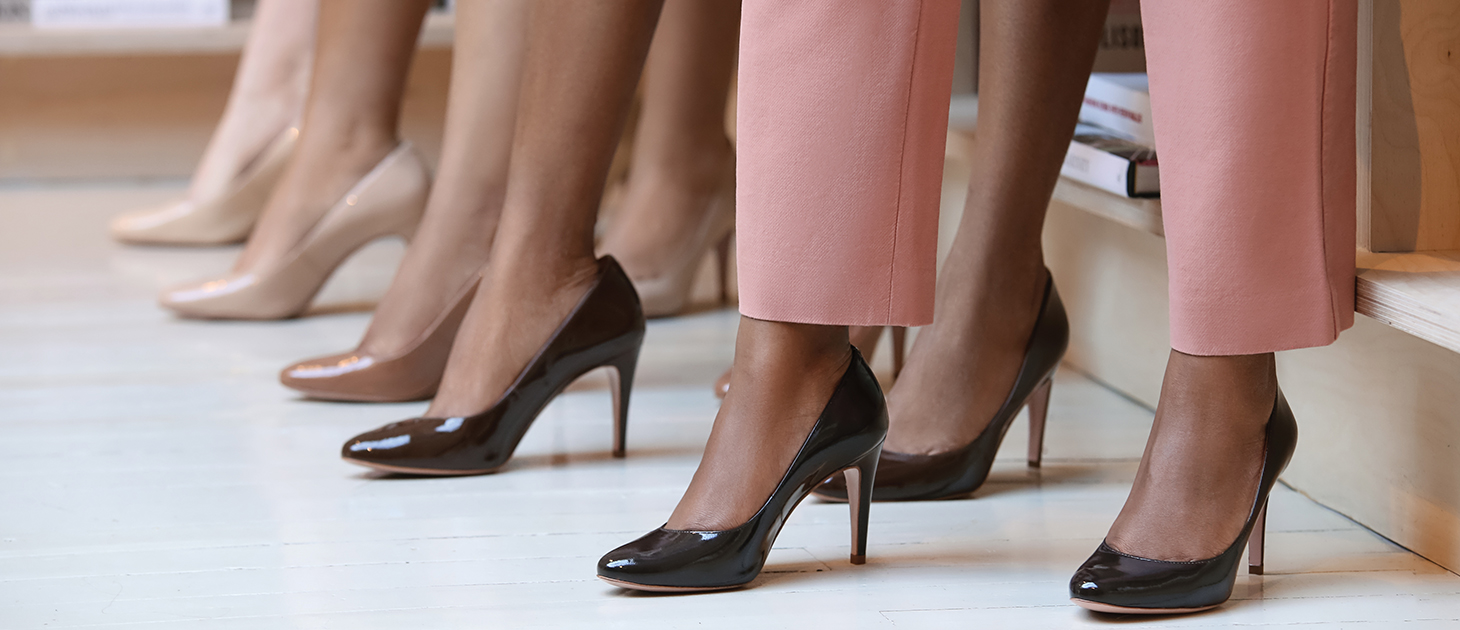New Shoe Line Makes Strides for Inclusivity
After spotting a gap in the market, Rebecca Allen quit her job to launch a company offering skin-toned shoes for women of color.

Nude-colored flats and heels are a wardrobe staple for many women. They’re easy to pair with any outfit because they match a wearer’s skin tone. That is, unless you’re a woman of color.
Rebecca Allen’s white colleagues regularly wore “nude” shoes to work, but when she went looking for a pair herself, she came up empty-handed. “It was just really frustrating. I scoured department stores, online boutiques, offline boutiques, everything,” says Allen, who is African American.
While researching the market in 2017, she discovered that white women owned an average of three to five pairs of nude-colored shoes, while women of color “had maybe one pair that wasn’t actually even nude for them,” she says. She found that for some brands, nude shades made up a quarter of their sales. “When you look at some of these big incumbent brands, nude is really the bread and butter of their business,” she says, “but they’re only catering to a fraction of women who want to wear this style.”
In addition to researching the market, Allen started working on a concept for a business and began testing products. At the end of 2017, she left her job as an investment manager to launch a company under her name.
The Rebecca Allen line includes flats, pumps and a heeled sandal, each available in five shades of nude that “complement women from dark to light, particularly all my brown ladies,” according to a letter from Allen on the company’s website. Prices range from $225 to $265, depending on the style.
As a direct-to-consumer online brand, the company benefits from an immediate feedback loop that more established brands lack. The challenges of matching inventory to demand and getting new offerings into wholesale and brick-and-mortar channels are among the reasons Allen suspects large companies have been slow to offer more diverse lines of their own.
Another reason is one many industries are grappling with. “The other side of this is the fact that a lot of these brands are still really missing diversity in the marketing room,” Allen says. “There’s really just a big empty spot at the table.” Without a broader range of perspectives at all levels of management, companies are failing to spot new opportunities in the market.
Allen used angel investment and support from friends and family to get started. She’s currently raising outside capital through a pre-seed round.
To help drive sales, she’s fostering an online community and engaging with customers in person through shopping events and partnerships with complementary brands. She plans to make the brand accessible to a broader group of women by hosting shopping events in smaller cities, which are often overlooked by larger brands, and by offering shoes in extended sizes.
For many of Allen’s customers, her line signifies more than just shoes. “There’s a piece of the brand that really makes women feel seen,” she says. “It’s more than just the product in and of itself. But obviously, the product has to be great too.”
This story originally appeared in the July/August print edition of Middle Market Growth magazine. Read the full issue in the archive.

Kathryn Mulligan is the editor-in-chief of Middle Market Growth.


